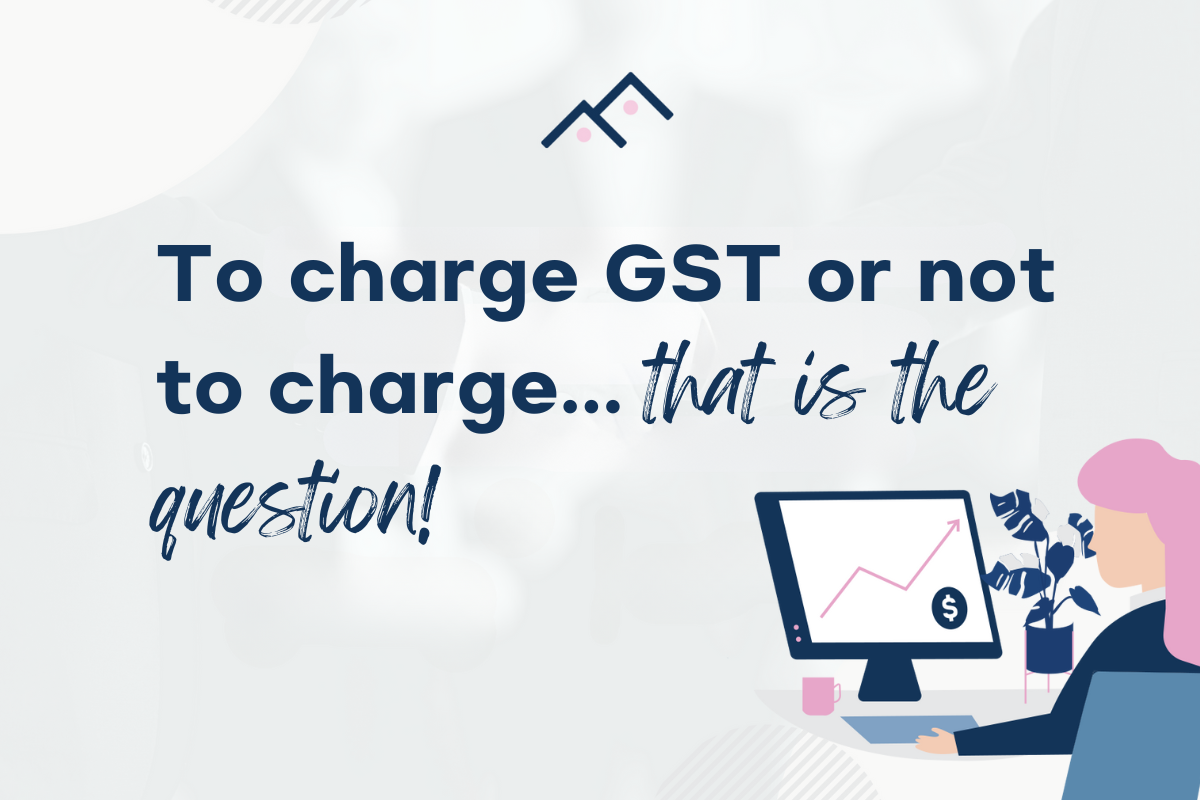Conveyancers spend their days juggling competing priorities and deadlines, so having the right...
To charge GST or not to charge… That is the question!

It’s a debate that has been ongoing since the inception of GST some 20 years ago. Should conveyancers charge GST on search and enquiry fees or not? Conveyancers, being the highly compliant bunch that we are, want to get it right, so it’s interesting to see that still, depending on who you ask, you’ll probably get a variety of answers ranging from ‘Yes, definitely’ to ‘It depends’ to ‘Of course not’. So what is correct? To get a straight answer for you once and for all, we went straight to the source of the truth: the Australian Taxation Office. Specifically, Goods and Services Tax Ruling GSTR 2000/37 – GST and Reimbursements.
Upon first glance, the ruling may seem daunting, filled with tax jargon that could induce heart palpitations. However, let’s break it down into digestible pieces…
When does GST not apply?
Let’s start with the instances where you shouldn’t add GST. The easiest way to consider this is when you are merely acting as a money handler or a conduit for payments that your clients need to make. Essentially, you’re the go-between, not the end user. These payments are specific costs you incur on behalf of the client, which are not part of your service fee but are essential for completing the client’s required tasks.
For example, when you pay government charges like application fees, registration fees, or court fees on behalf of your client, these disbursements should not attract GST when you recover these costs from your client. This is because you are acting as a paying agent. You are not incurring the cost and then seeking reimbursement from your client. GST-free disbursements include:
- Application fees
- Registration fees
- Court fees
- Official fines and penalties
- Stamp duties and other taxes
- Probate fees
In these instances, the expenses are incurred under your client’s name and authority, and you do not add a markup to these costs. Your role is that of a facilitator, ensuring that the necessary payments are made promptly and accurately.
The only other instance in which GST should not be charged is when the conveyancing business operates under the GST threshold and is not registered for GST.
When does GST apply?
Now, let’s consider the alternative – when GST does apply. There are scenarios where you, as a conveyancer, need to recover costs that are integral to the services you provide. These are not just pass-through expenses but are necessary for delivering your professional service to the client. These costs are incurred by your business during the course of providing your services, and as such, they form part of the consideration for your service delivery, which means they attract GST.
Examples include:
- Search fees such as council searches, title searches, and Main Roads searches
- Service of document fees
- Fees for obtaining official documents like birth, death, or marriage certificates
- Costs related to court proceedings, such as filing fees and obtaining court transcripts
When you incur these costs directly in the process of providing your conveyancing services and then charge these costs to your clients, GST should be applied. Think of the analogy of a baker buying ingredients to bake a cake for a client – the cost of ingredients (in this case, the disbursements) naturally becomes part of the price of the cake (your service), upon which GST is charged.
Seek professional tax guidance on GST matters
Given the complexities of GST legislation, it’s wise to consult with a tax professional to ensure that your billing practices align with current laws. After all, no conveyancer wants to inadvertently contravene the GST Act. GST on disbursements isn’t just a matter of if but how you apply it based on your role in the payment process and the nature of each cost.
Certainly, the above ruling as it relates to conveyancers will give your tax practitioner an excellent starting point to form the basis of their advice.
Integrating an accurate approach to GST in your conveyancing practices not only ensures you stay on the right side of the law but also solidifies your reputation as a transparent and trustworthy service provider. So, while GST considerations can add an extra layer to your workload, it’s important to get it right.
See also: ATO Private Ruling Authorisation Number: 1011513551891


.png?height=200&name=Client%20Spotlight%20Blog%20Header%20(8).png)
